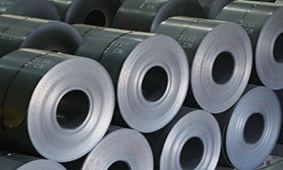
EU HRC quota drawdown slows to a trickle

Turkey, Russia, India, Serbia, South Korea and Taiwan have around 2.6mn t available for the October-December quota, out of a duty-free potential of around 3.8mn t. The global HRC quota was amended as of 1 October so that no country can account for more than 30pc of quarterly imports.
Other countries still have over 1.4mn t that they could ship to the EU 28 between now and the end of December.
Out of all these third countries, Turkey has shipped the most HRC to Europe this quarter — it has 229,000t remaining out of its 635,000t duty-free allowance. Russia has 401,000t remaining out of its 635,000t quota.
Import prices to Europe have firmed significantly in recent weeks for a number of reasons, primarily anticipated production disruptions in Italy and a global uptick underpinned by rising scrap costs. But import prices are now out of step with domestic offers, certainly in the south, and buyers are holding off on their purchases and seem sanguine about availability going forward.
Argus' weekly cfr southern Europe HRC assessment rose by €15/t last week to €440/t, a gain of €60/t since the end of October. Over the same period, the domestic Italian index has risen by €31.75/t to €419/t, while the northwest Europe index nudged up by just €14.50/t to €428.75/t ex-works — northern pricing is less import dependent and buyers have been slower to accept the increases sought by mills. Spot activity in the north has also ebbed quite dramatically, with buyers and sellers focusing on contract talks.


Trump weighs using $2 billion in CHIPS Act funding for critical minerals

Codelco cuts 2025 copper forecast after El Teniente mine collapse

Electra converts debt, launches $30M raise to jumpstart stalled cobalt refinery

Abcourt readies Sleeping Giant mill to pour first gold since 2014

Barrick’s Reko Diq in line for $410M ADB backing

Nevada army depot to serve as base for first US strategic minerals stockpile

Tailings could meet much of US critical mineral demand – study

Viridis unveils 200Mt initial reserve for Brazil rare earth project

SQM boosts lithium supply plans as prices flick higher

Energy Fuels soars on Vulcan Elements partnership

Northern Dynasty sticks to proposal in battle to lift Pebble mine veto

Giustra-backed mining firm teams up with informal miners in Colombia

Critical Metals signs agreement to supply rare earth to US government-funded facility

China extends rare earth controls to imported material

Galan Lithium proceeds with $13M financing for Argentina project

Silver price touches $39 as market weighs rate cut outlook

First Quantum drops plan to sell stakes in Zambia copper mines

Ivanhoe advances Kamoa dewatering plan, plans forecasts

Texas factory gives Chinese copper firm an edge in tariff war

Energy Fuels soars on Vulcan Elements partnership

Northern Dynasty sticks to proposal in battle to lift Pebble mine veto

Giustra-backed mining firm teams up with informal miners in Colombia

Critical Metals signs agreement to supply rare earth to US government-funded facility

China extends rare earth controls to imported material

Galan Lithium proceeds with $13M financing for Argentina project

Silver price touches $39 as market weighs rate cut outlook

First Quantum drops plan to sell stakes in Zambia copper mines

Ivanhoe advances Kamoa dewatering plan, plans forecasts

















